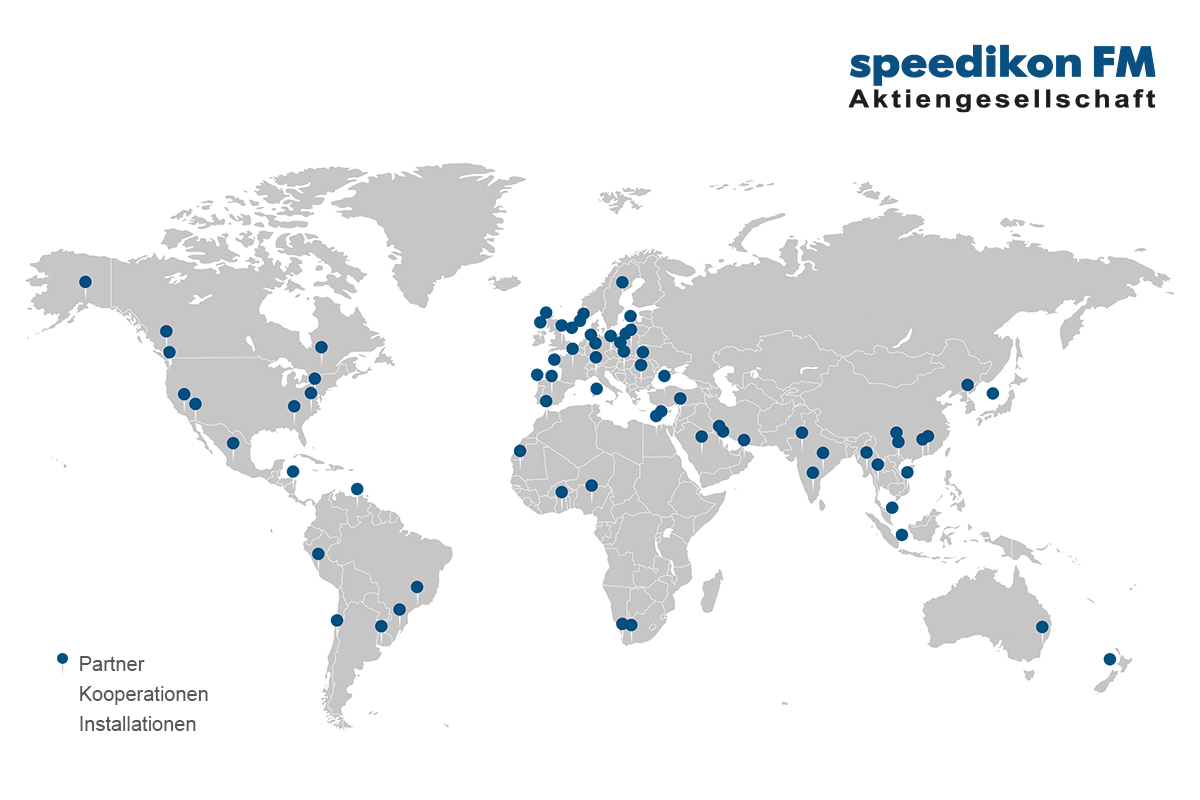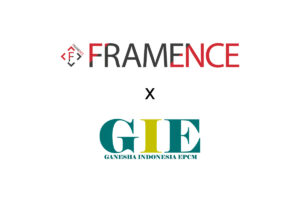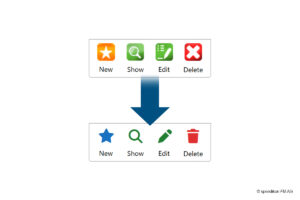Many international companies strive to harmonize all facility management processes across countries. Standardized regulations, processes and approaches are the goal, and this also includes the implementation of standardized CAFM software that can be used at different locations. When looking for the right software provider, many companies prefer providers with an international presence.
Multilingualism as a core function
However, it is more important to ensure that the chosen software is designed from the ground up for international use. This means that multilingualism is integrated into the software from the outset. This allows users to display all content in their preferred language. Not only the application itself, but also all data can be translated. In the DACH region, applications should be delivered in German, English and French as standard. If a company operates worldwide, any additional language is a plus. For example, some providers also integrate languages such as Chinese, Japanese, Dutch, Hungarian and many more, depending on requirements. They are therefore able not only to swap words, but also to take into account writing directions and spellings, for example as clusters instead of linear representation
Time shift
Time zones and time differences are also an important aspect in an international context. To ensure that all time data is always correct, professional systems always work with universal time (UTC) and adjust the time values accordingly to the local time of the respective location. This is of great importance for the correct evaluation of processing times in ticketing, for example, but also in the context of archiving and audit-proof documentation.
Conversion factor
It is also important that the software supports the automatic conversion of international units of measurement so that every user can work with their preferred units. Even the conversion of values that are not constant, such as currencies, should be possible without any problems so that the commercial aspects of FM are always correct. The exchange rates on which the conversion is based can be adjusted annually, quarterly or as required. This makes financial planning and reporting for international business activities much easier.
Country specifics
As the requirements and standards vary from country to country, internationally oriented software ultimately enables its users to create and adapt their own country-specific catalogs and lists for resources, services and products. Of course, this also applies to reporting and country-specific evaluations as well as to standards, which can be stored as required in addition to ISO, DIN, SIA and ÖNORM, which would be important for the DACH region, for example.
Picture: freepik/Freepik.com; Edit: speedikon FM AG




